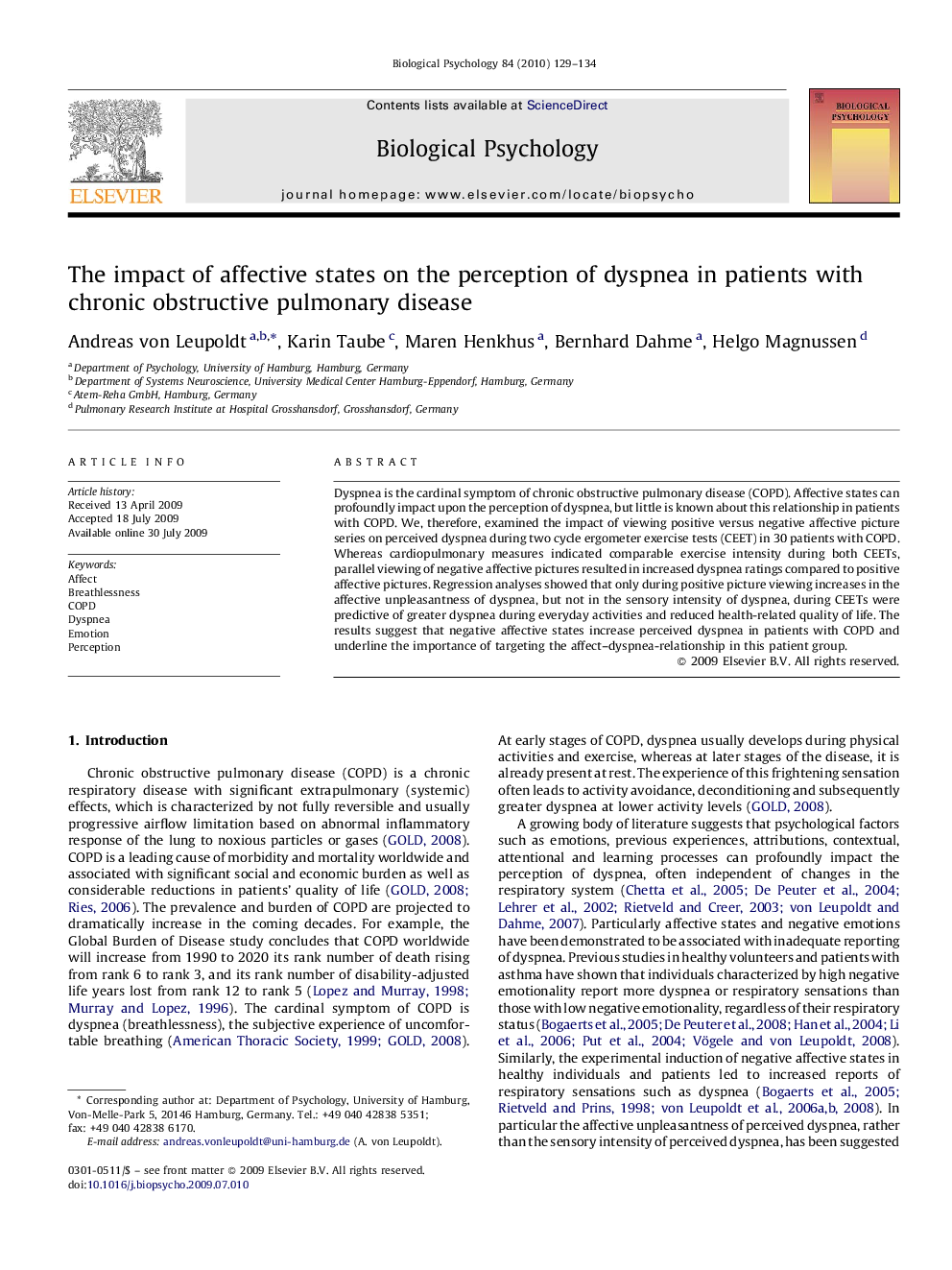| Article ID | Journal | Published Year | Pages | File Type |
|---|---|---|---|---|
| 921231 | Biological Psychology | 2010 | 6 Pages |
Dyspnea is the cardinal symptom of chronic obstructive pulmonary disease (COPD). Affective states can profoundly impact upon the perception of dyspnea, but little is known about this relationship in patients with COPD. We, therefore, examined the impact of viewing positive versus negative affective picture series on perceived dyspnea during two cycle ergometer exercise tests (CEET) in 30 patients with COPD. Whereas cardiopulmonary measures indicated comparable exercise intensity during both CEETs, parallel viewing of negative affective pictures resulted in increased dyspnea ratings compared to positive affective pictures. Regression analyses showed that only during positive picture viewing increases in the affective unpleasantness of dyspnea, but not in the sensory intensity of dyspnea, during CEETs were predictive of greater dyspnea during everyday activities and reduced health-related quality of life. The results suggest that negative affective states increase perceived dyspnea in patients with COPD and underline the importance of targeting the affect–dyspnea-relationship in this patient group.
